Projects & Grant Recipients
Community Partner Fund + Global Leadership Adventures International Foundation
On this page, we have curated a list of every community partner organization that the Global Leadership Adventures International Foundation helps to support, as well as their corresponding project.
When you make a donation on behalf of the Community Partner Fund through the GLA International Foundation, you are directly supporting these organizations and the exceptional work they do around the world, whether that be in at-risk habitats, communities-in need or beyond.
We encourage you to read these stories below as you consider making a donation to our Community Partner Fund. The work these partner organizations commit to, and work to make sustainable month after month, year after year, is nothing short of astounding.
The Global Leadership Adventures International Foundation conducts a rigorous review process of our partner orgs prior to adding them to this list, in order to make sure the funds they receive can go toward support of their organization and the projects they run.
When you make a donation to this fund, you can donate to the general fund, or make a separate note for us about which partner org you’d like your donation funds to be allocated to.
COMMUNITY PARTNERS
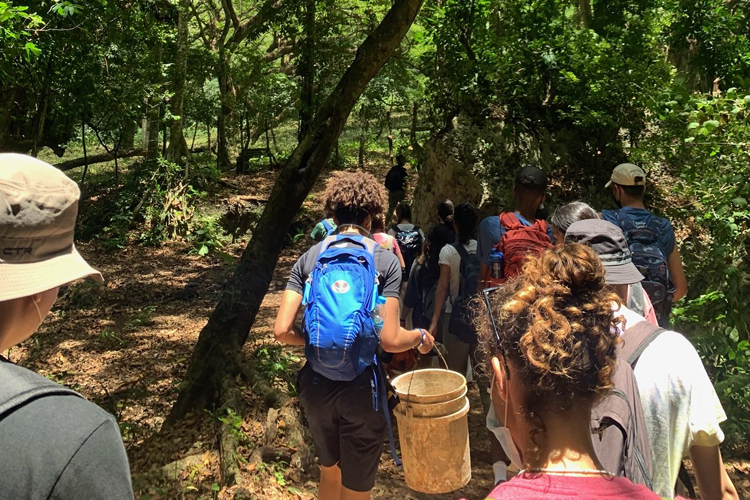
PROJECTS
Building Sustainable, Healthy Communities in the Dominican Republic
DETAILS
Founded by Dr. David Addison over a decade ago. Inspired by his studies in the Dominican Republic, Dr. Addison combines sustainable projects with student education to address critical community needs while fostering a socially conscious and sustainable future.
MORE INFORMATION
7Elements focuses on the seven elements of human security, as defined by the United Nations: Economic, Environmental, Food, Health, Political, Personal, and Community. Through hands-on educational opportunities, the organization empowers partner communities in the Dominican Republic to sustain projects that improve daily life. Their initiatives address various human security issues, including clean-burning stoves for health, bottle houses for environmental and personal security, and reforestation for environmental sustainability.
RELATED GLA PROGRAM(S) & PROJECTS
Dominican Republic: Global Health Initiative
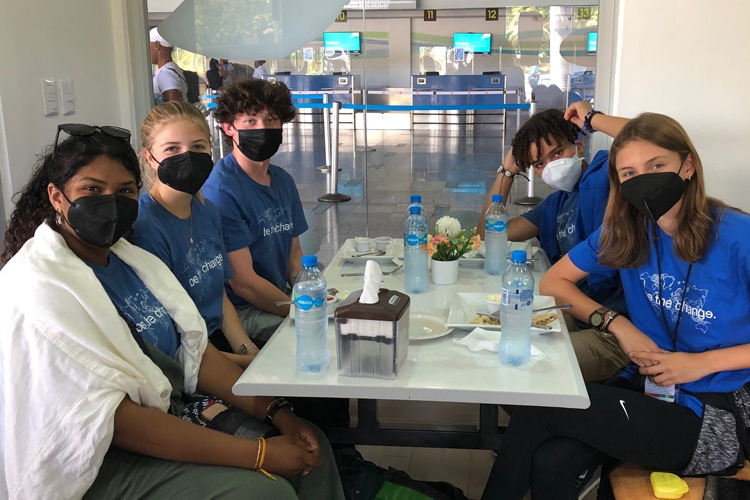
GRANT RECIPIENT
7 Elements
ABOUT THIS PARTNER
With a focus on sustainability, 7 Elements works directly with communities in the Dominican Republic that face severe poverty and limited access to basic resources. They help address immediate needs through intentional community engagement while promoting long-term change. Their innovative initiatives include building homes and schools using recycled bottles and carrying out mobile medical clinics, contributing to public health, local development, and environmental sustainability.
PROJECT HIGHLIGHTS
- Through the DR Global Health Initiative Program, GLA students collaborate with 7 Elements to conduct mobile medical clinics annually in rural Dominican communities. Their work ensures hundreds of people receive vital healthcare services, including prevention, diagnosis, and treatment each year.
- GLA students help improve development and public health outcomes in rural Dominican communities by contributing to vital infrastructure projects, such as constructing bottle house buildings, building bathrooms and laying cement flooring.
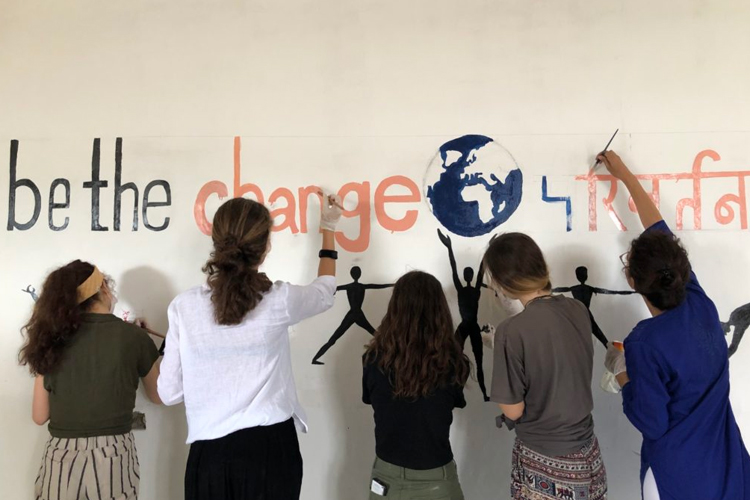
PROJECT
Improving Lives of Orphaned Children in India
DETAILS
Currently, Aashray houses 60 children between the ages of 5 and 18. This initiative is supported by dedicated staff members and several individual volunteers and organizations. Aashray provides counseling to both children and family members, healthy meals, supplemental education, life skills, and support and guidance toward responsible and independent adulthood.
MORE INFORMATION
Aashray Care Home was founded by Positive Women Network of Rajasthan Society in 2006 by women who were widowed as a result of or diagnosed with HIV/AIDS. Initially, there were only few children and a lack of community support. Gradually, local support increased, and with it Aashray was able to expand to provide care and services to over 60 children. Presently, the organization is running two orphanages in Jaipur, India and also running two homes for HIV patients under Global Fund to fight TB, HIV and Malaria.
Aashray cares for children ages 3 – 18 who have been displaced due to HIV/AIDS status in two separate facilities, one for each gender. In addition to providing basic necessities and education, Aashray plans to expand to provide temporary housing to residents after their eighteenth birthday, to assist in the transition to independence.
RELATED GLA PROGRAM(S) & PROJECTS
Formerly India: The Initiative for Children
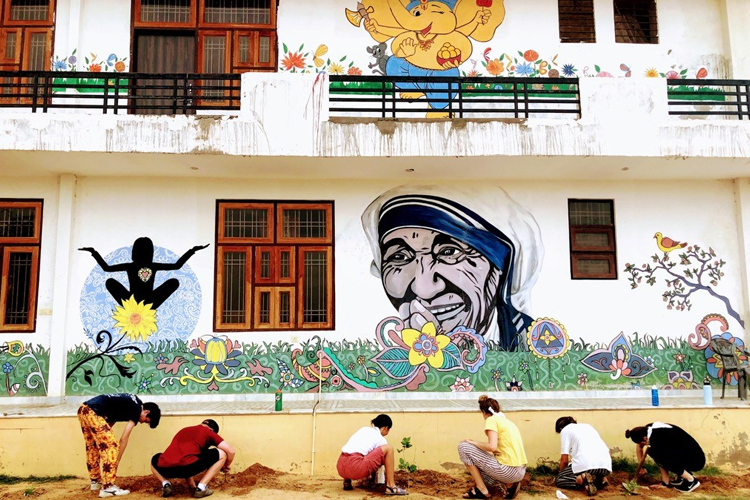
GRANT RECIPIENT
Aashray Care Home
ABOUT THIS PARTNER
The Aashray Care Home was established in 2006 for children affected by HIV and AIDS. Their mission is to advocate for social inclusion of HIV infected and affected children and their participation in all major national flagship programs.
Currently, Aashray houses 60 children between the ages of 5 and 18. This initiative is supported by dedicated staff members and several individual volunteers and organizations. Aashray provides counseling to both children and family members, supplemental education, life skills, and support and guidance toward responsible and independent adulthood.
HIGHLIGHTS
- Aashray has provided care to 65 children since being founded in 2008.
- HIV/AIDS is highly stigmatized in India, resulting in a low incidence of testing and treatment; as a result, it is not uncommon for children to be orphaned due to the death of both parents from the virus.
- 35% of children of HIV-infected adults are denied basic amenities such as proper nutrition due to this stigma; many in India view HIV/AIDS as a death-sentence.
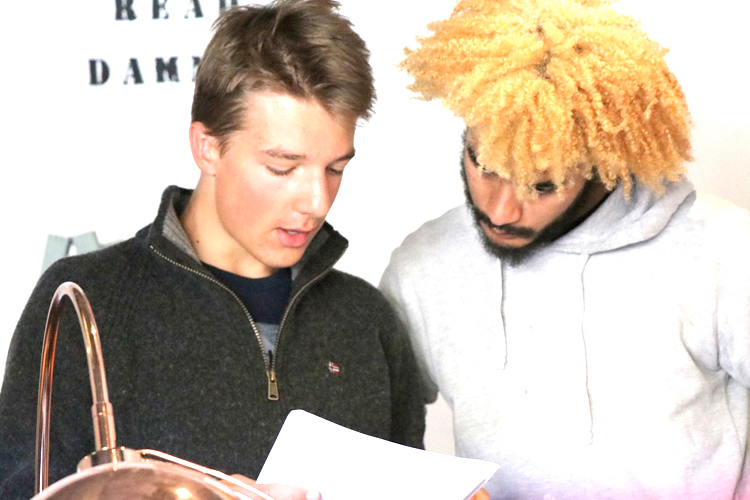
PROJECT
Inspiring Tomorrow’s Leaders in South Africa
DETAILS
ALA seeks out youth with exceptional potential, closing the opportunity gap and developing their skills in a two-year residential program. ALA connects graduates to opportunities such as career and postgraduate opportunities that enable students to lead change in Africa’s public, private, and social sectors.
MORE INFORMATION
The African Leadership Academy and Global Leadership Adventures actually share a founder! As a way to develop the curriculum for ALA and bring together students from Africa and around the world, Fred Swaniker created the Summer Academy at Cape Town.
That’s when Fred joined forces with Andrew Motiwalla, a returned Peace Corps volunteer, to lead a new organization that provided summer leadership experiences to all interested teenagers. Building on the success of the Summer Academy at Cape Town, and believing in the potential of every young adult to be a global leader and make an impact, Global Leadership Adventures was born.
Fred Swaniker was named to the Time 100 list in 2019 for his work on the African Leadership Academy and beyond.
RELATED GLA PROGRAM(S) & PROJECTS
Formerly South Africa: Social Change Project
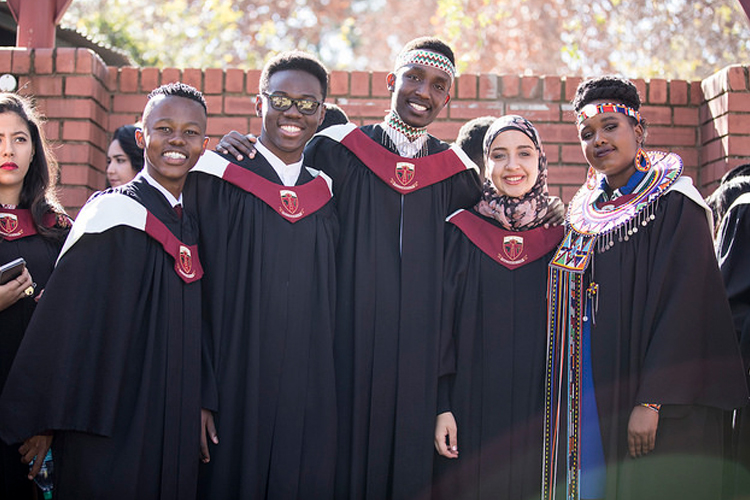
GRANT RECIPIENT
African Leadership Academy
ABOUT THIS PARTNER
African Leadership Academy (ALA) is a pan-African high school in Johannesburg, South Africa that seeks to transform Africa by developing a powerful network of leaders who will work together to address Africa’s greatest challenges through ethical leadership.
Donations to ALA contribute to building the next generation of leaders who will work together to address Africa’s greatest challenges and meet the needs of a changing continent and the demands of its citizens.
HIGHLIGHTS
- ALA’s Ghanaian founder, Fred Swaniker, was recognized by President Obama for the positive community impact of ALA. Before attending Stanford Graduate School of business, Fred managed a top-performing school in Botswana.
- Ninety percent of ALA graduates have actively engaged in work or transformative projects in Africa; 99% go on to attend college.
- ALA provides partial and full scholarships to students who show enormous potential but have a financial need.
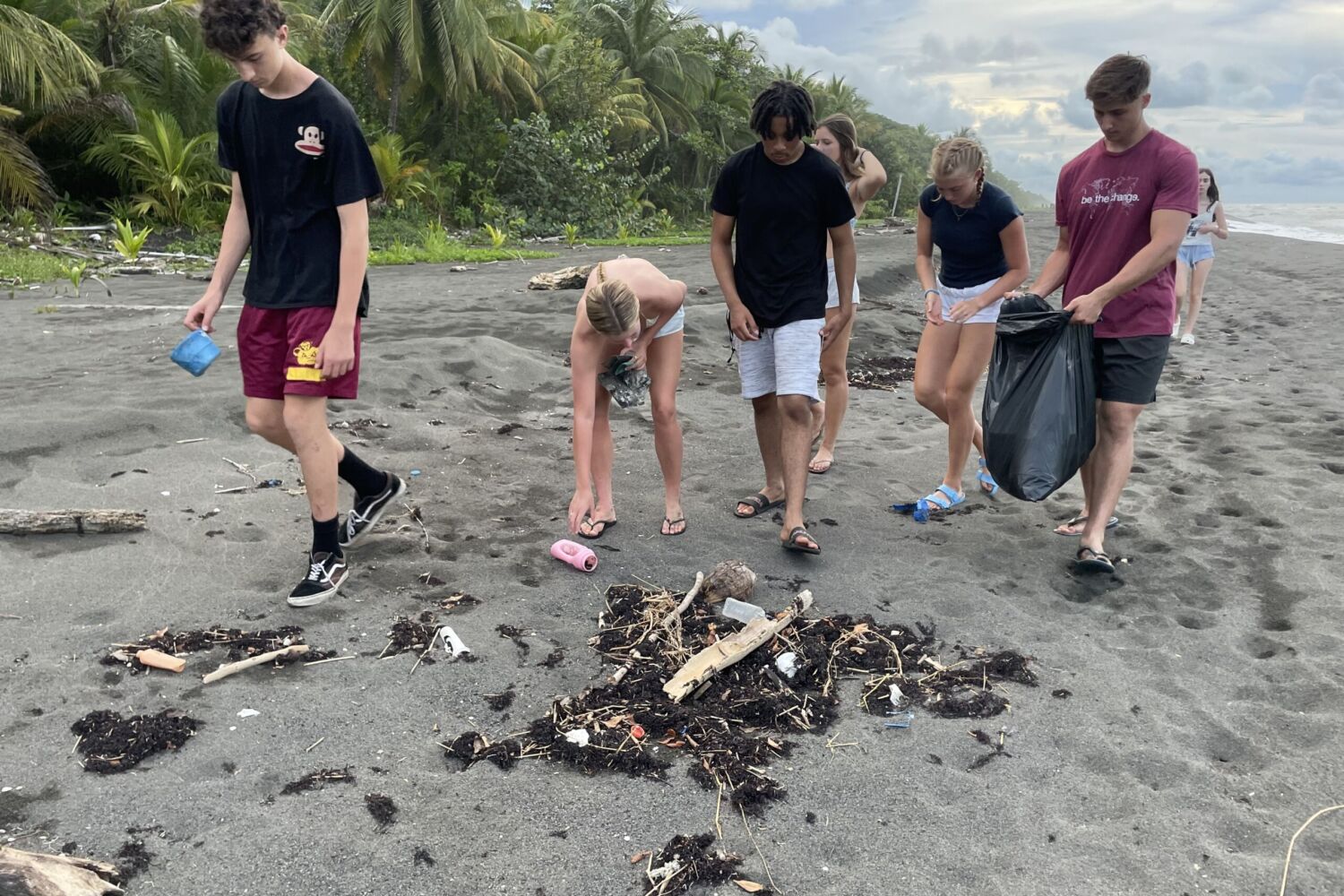
PROJECT
Supporting Rural Costa Rican Communities
DETAILS
Art is a powerful thing: it is a tool for engaging youth, bringing communities together, building pride, and has the ability to transform the run-of-the-mill to something magical.
Parismina Community Fund’s most pressing project is the completion of a mural of the village logo: The community came together to paint a mural to show pride and identity, but due to a lack of funding for supplies it has remained unfinished.
Next, there are several spaces earmarked for murals and other creative additions including a community center, schools, and public spaces.
MORE INFORMATION
From our partner:
“Murals create vibrant neighborhoods that people want to visit, live in, and take care of!
In Latin America there is long history of murals being the messengers of history, values and hopes for the future. In conservation efforts, studies have shown that murals boost the environmental awareness (especially in kids). This is what inspires our projects and the volunteering we want to bring into the community.”
RELATED GLA PROGRAM(S) & PROJECTS
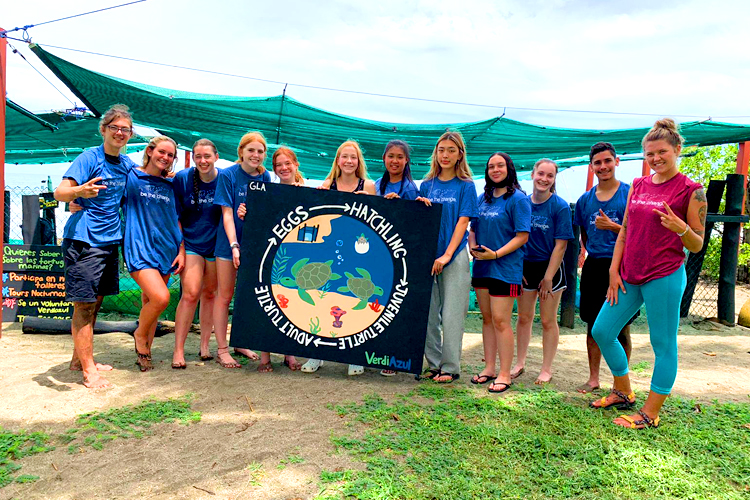
GRANT RECIPIENT
Parismina Community Fund
ABOUT THIS PARTNER
Local Director for the GLA Costa Rica: Sea Turtle Initiative Program, Jason Taylor, runs this project. He grew up in this rural community and has been an active organizer of community-based initiatives for many years. Through the Parismina Community Fund, Jason and other volunteers continue to build bridges between the beautiful community of Parismina and its visitors. This organization focuses on engaging local youth in art projects to help beautify their community spaces while bringing a shared sense of belonging through the arts.
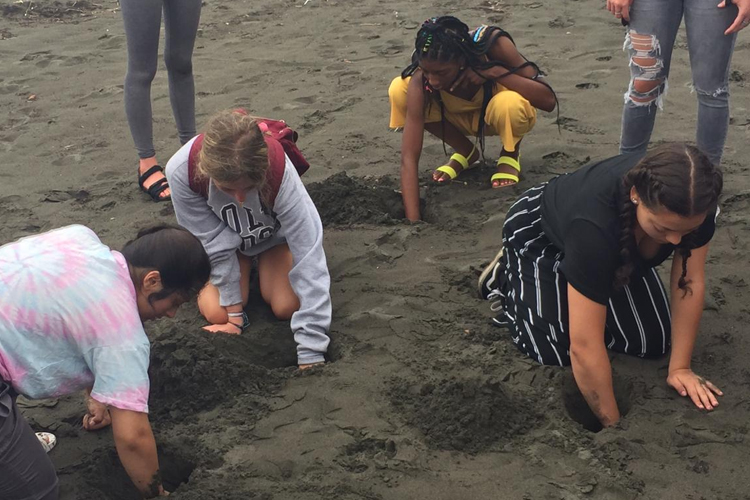
PROJECT
Protecting Sea Turtles in Costa Rica & Providing a Sustainable Income Alternative for the Local Community
DETAILS
Asociacion Salvemos las Tortugas de Parismina is a community run non profit based in Parismina, Costa Rica. ASTOP is a conservation organization dedicated to protecting sea turtles and their eggs from poaching.
Four different species of sea turtles (green, leatherback, hawksbill, loggerhead) nest on the beaches of Parismina, all are listed as vulnerable, endangered, or critically endangered by the International Union for Conservation of Nature.
ASTOP was formed in April of 2001 by local residents in conjunction with the Costa Rica Coast Guard.
MORE INFORMATION
In addition to their principle projects, ASTOP organizes many cultural, environmental and education programs, such as beach cleanups, ecological agriculture programs, and art activities for children. They are also building a butterfly farm and a tropical garden.
RELATED GLA PROGRAM(S) & PROJECTS
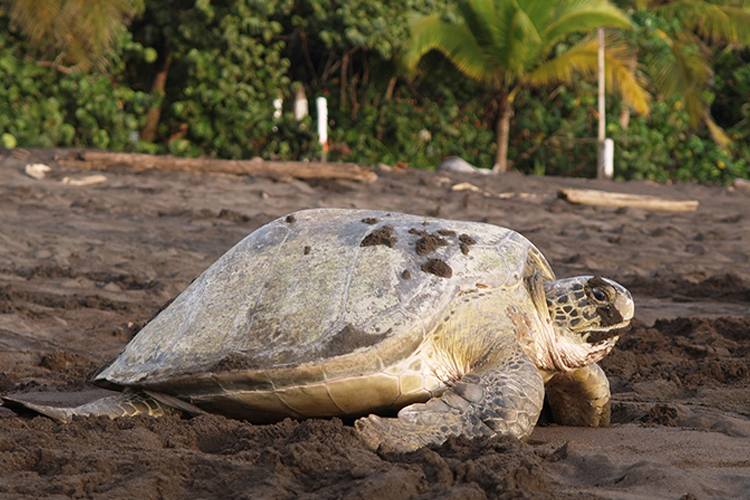
GRANT RECIPIENT
Asociación Salvemos las Tortugas de Parismina (ASTOP)
ABOUT THIS PARTNER
Asociacion Salvemos las Tortugas de Parismina (ASTOP) is a grassroots nonprofit located in rural Parisima, Costa Rica. It is dedicated to protecting sea turtles and their eggs through anti-poaching measures, hatchling rehabilitation and nesting beach conservation.
By employing former poachers and promoting ecotourism, ASTOP supports the sustainable development and local economy of Parismina, a village of about 400 people.
HIGHLIGHTS
- Before the formation of ASTOP 98% of green turtles were killed for their meat and 98% of all turtle nests on Parismina beach were poached. Poaching has since decreased by 60%, saving 10,000 hatchlings each year.
- ASTOP also supports the village of Parismina economically and employees former poachers as “turtle guides” leading tourists on night hikes to view nesting turtles.
- There is no road to Parismina–it is accessible only by boat or plane and the only paved surface in town is a runway. ASTOP helps both local and international volunteers arrange logistics in order to ensure they have enough volunteers to support their principle projects of night patrols of sea turtle nesting sites and maintaining the turtle nursery.
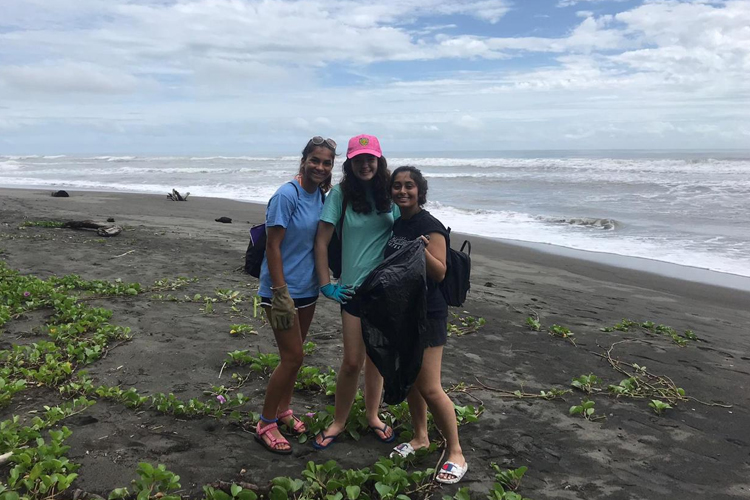
PROJECT
Protecting Sea Turtles and Preserving the Ecosystems they Depend On
DETAILS
From 2005 to 2010, the World Wildlife Fund developed el Proyecto de Conservación de Baulas del Pacífico (CBP) the Project for Conservation of the Pacific Leatherback Turtles at Junquillal Beach in Costa Rica to save the critically endangered Pacific leatherback who use Junquillal Beach as its nesting ground.
In October of 2010 AVIVE was formed as a community-based organization to continue the work of the CBP and ensure optimal conditions for turtle nesting through active conservation with community support. The organization now protects all local species of sea turtles and works to conserve the local ecosystem and the welfare of the Junquillal community.
MORE INFORMATION
Sea turtles face threats from a variety of sources in Costa Rica. Climate change threatens nesting areas, predators threaten eggs and young hatchlings, but humans are also a threat. Besides being packed with nutrition, Costa Rican folklore says that sea turtle eggs are an aphrodisiac, so it has been the cultural norm for people to steal eggs to eat or sell.
RELATED GLA PROGRAM(S) & PROJECTS
Formerly: Costa Rica: Spring Break Service Adventure
Costa Rica: Beachside Service Adventure
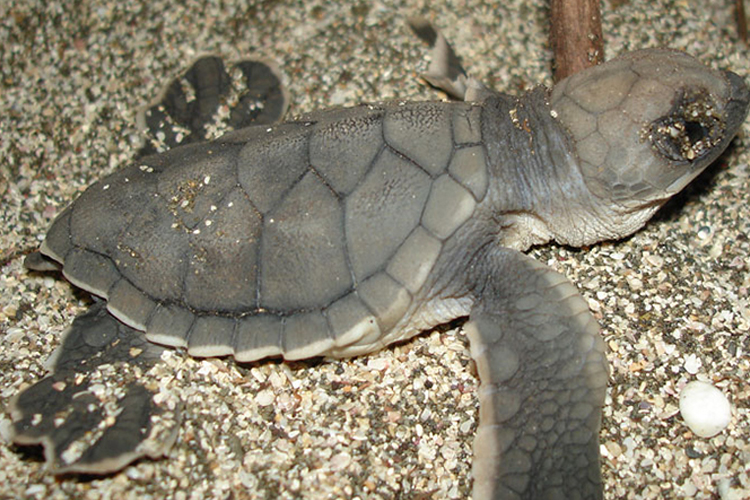
GRANT RECIPIENT
Asociación Vida Verdiazul (AVIVE)
ABOUT THIS PARTNER
Asociación Vida Verdiazul (AVIVE) is an independent, non-governmental, non-profit whose goal is to ensure the conservation of threatened ecosystems and contribute to the well-being of the communities that depend on them. Officially formed in 2010, this group of passionate environmentalists has been working independently since 2001 to conserve sea turtles and the Nandamojo River Basin.
AVIVE achieves its goals through simple, concrete actions including nightly beach patrols, operation of a turtle hatchery, replanting native tree species in coastal areas and educating local youth on the importance of conservation.
HIGHLIGHTS
- Temperature of the nest determines the gender of sea turtle hatchlings. Typically eggs at the bottom, or cooler part, of the nest hatch males while eggs toward the top, or warmer part, of the nest hatch females. With climate change and increased sand temperatures, more female sea turtles are being born than males, creating a threat to genetic diversity. To combat this AVIVE maintains a hatchery where they transplant eggs from nests on the beach to the sand of the protected hatchery. The moisture and temperature of the hatchery is controlled and it also provides protection from stray dogs and other predators.
- In addition to working directly with turtles, AVIVE also implements educational programs for children in the surrounding communities. In fact, local primary and secondary students who were a part of this program, presented their research on sea turtle conservation and were finalists in la Feria Científica de Costa Rica (the National Science Fair of Costa Rica)!
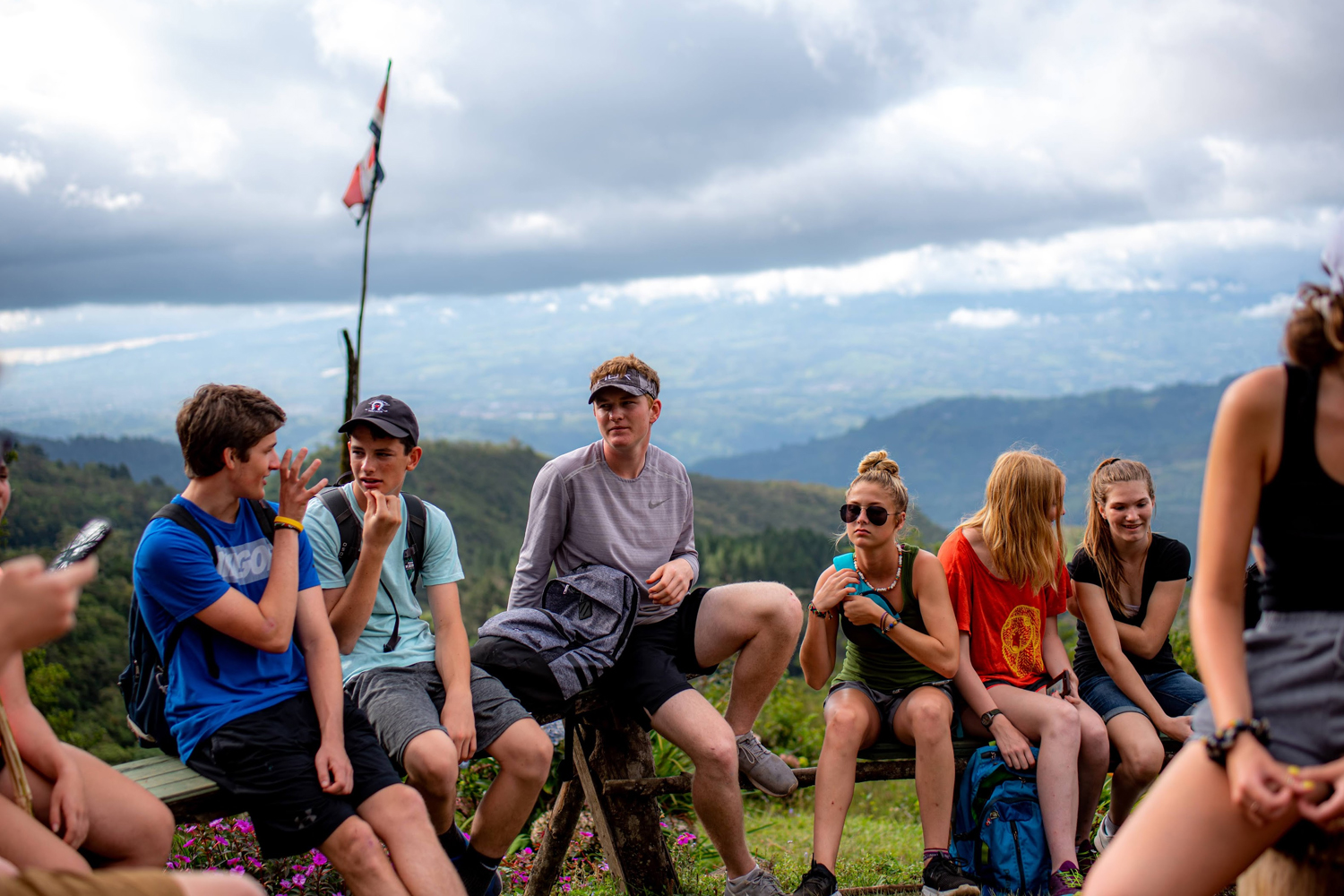
PROJECT
Rainforest conservation, scientific research, and environmental education in the Osa Peninsula.
DETAILS
Our mission is to protect the endangered wildlife of Costa Rica by creating rainforest reserves through land acquisitions, environmental education of the local population, and engagement with national and international partners.
Our Rio Nuevo Nature Reserve is 135 acres / 55 hectares of critical riparian rainforest adjacent to the Golfo Dulce Forest Reserve in the important buffer zone of Corcovado National Park.
Our reserve protects an area of primary rainforest inhabited by highly threatened wildlife endemic to the Golfo Dulce. Our fieldwork has confirmed the presence of iconic wildlife such as tapirs, five species of wildcats, four species of monkeys, two species of anteaters, two species of sloths as well as armadillos, otters, tyras, coatis, deer, peccaries. There are also approximately 200 bird species, 20 species of amphibians, and 450 species of diurnal butterflies.
MORE INFORMATION
Local community involvement in conservation is key to save the most biologically diverse tropical rainforest on Earth.
We believe that achieving long-term conservation success requires engaging with, and providing benefits to, local communities. Our community-based conservation strategy engages the surrounding communities of Corcovado National Park and our Rio Nuevo Nature Reserve in the importance and the value of preserving this rich environment and its biodiversity.
RELATED GLA PROGRAM(S) & PROJECTS
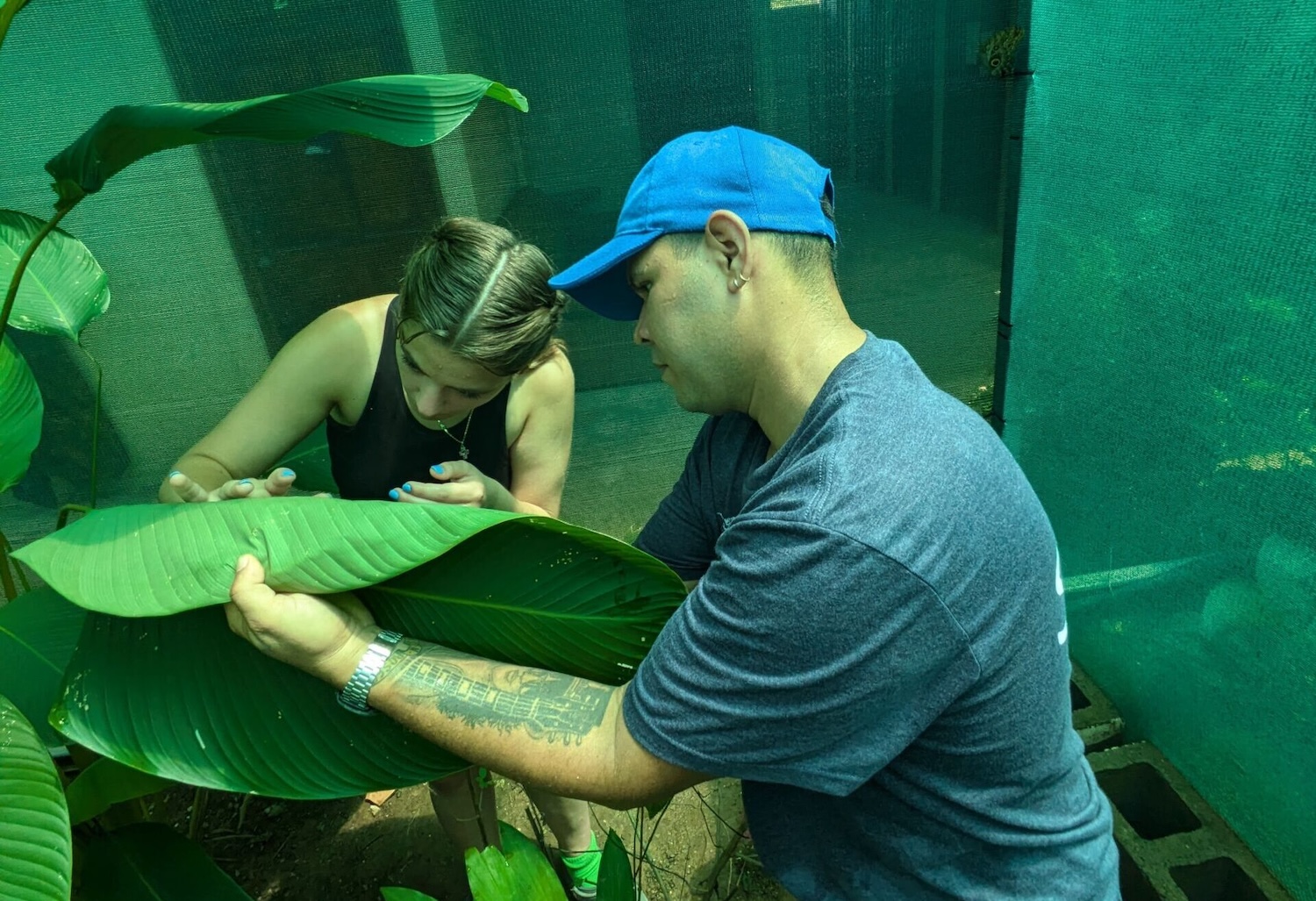
GRANT RECIPIENT
BioSur Foundation
ABOUT THIS PARTNER
The BioSur Foundation is a Costa Rican non-profit that promotes rainforest conservation, scientific research, and environmental education in the southern Pacific tip of Costa Rica’s Osa Peninsula. Costa Rica is home to the most biologically intense tropical rainforests, holding 2.5% of the world’s biodiversity.
The BioSur Foundation is committed to protecting the rainforests of Costa Rica. To counter climate change, protect critical wildlife habitat, and slow species mass extinction we must stop the destruction of rainforests. BioSur Foundation prioritizes engaging local and global communities in our conservation programs, as we recognize the future of our rainforests relies upon the unity of our efforts.
HIGHLIGHTS
GLA Interns in Costa Rica support biology research projects focused on ecological monitoring strategies through: rainforest camera traps, insects exploration, and aquatic insects & macroinvertebrates exploration. They also support ecological restoration strategy for the riverbank, and take part in community assistance and beach clean-up projects.
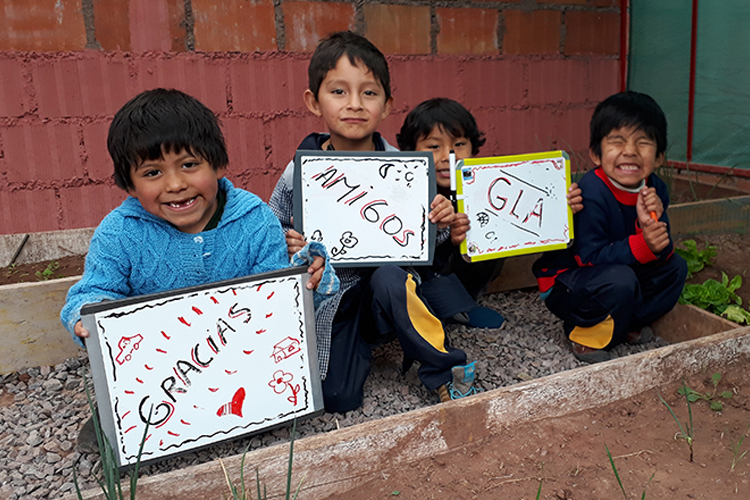
PROJECT
Global Health and Sustainability Projects: Empowering Communities in Peru
- Mobile Medical Clinics to Rural Highland Communities
- Infrastructural projects that promote public health, the environment and the local economy, such as building greenhouses and water conservation projects
DETAILS
MEDLIFE was founded in 2004 by Nick Ellis, inspired by his experience in Ecuador, where he encountered a young boy, Darwin, in need of heart surgery. Determined to help, Nick raised the necessary funds within hours, making Darwin MEDLIFE’s first patient. This moment shaped MEDLIFE’s mission to work closely with patients and communities, addressing their most urgent needs. Since then, MEDLIFE has expanded to regions like Peru, Tanzania, and Costa Rica, with hundreds of chapters worldwide raising awareness, funds, and offering volunteer support. Nick’s story continues to inspire our commitment to global health and development.
MORE INFORMATION
MEDLIFE’s approach to empowerment combines immediate care with long-term impact. Through Mobile Clinics, MEDLIFE provides essential healthcare, preventive education, and follow-up. Educational programs and infrastructure projects, like building schools and clinics, foster informed communities and stability. Economic initiatives support local businesses, while sustainable projects prioritize local resources and environmental care. With active community involvement in planning, MEDLIFE ensures projects meet local needs and fosters global solidarity by connecting communities worldwide.
RELATED GLA PROGRAM(S) & PROJECTS
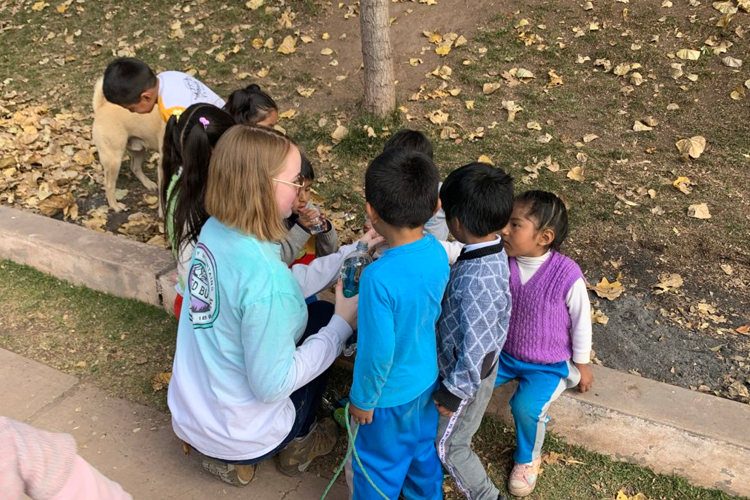
GRANT RECIPIENT
MEDLIFE
ABOUT THIS PARTNER
MEDLIFE partners with low-income communities and student groups to provide dental care, healthcare, education, and safe housing in underserved areas of South America and Africa. This year-round effort results in healthier families, informed individuals, and safer communities.
HIGHLIGHTS
- Through the Peru Foundations of Global Health Program, GLA students collaborate with MedLife to conduct over 15 mobile medical clinics annually in rural highland communities. Their work ensures hundreds of Peruvian citizens receive vital healthcare services, including prevention, diagnosis, and treatment each year.
- GLA students help improve public health outcomes by contributing to vital infrastructure projects, such as constructing greenhouses, retrofitting stoves for better ventilation, and building corn dehydrators—efforts that have a lasting impact on local health and wellbeing.
- As part of the Peru: Internship Career Exploration in STEM Program, GLA students partnered with MedLife to implement two critical water conservation projects. These included building a 1,200 m² water reservoir and creating a rudimentary water filtration system, benefiting an agricultural community of over 800 residents in an area facing severe drought conditions.
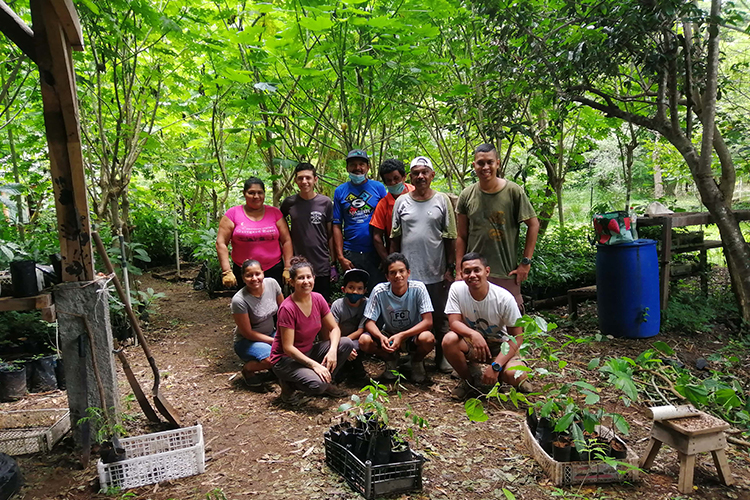
PROJECT
Long-Term Water Protection for Ecosystems and Communities
DETAILS
The priority project is the completion of a soil and organic fertilizer station to make compost creation more efficient and provide a safe, covered area in which volunteers can work. All visitors to the Guanacaste Water Center benefit from this project: local students, community service students, GLA program students, community volunteers, and foreign volunteers.
MORE INFORMATION
From our partner:
“Fertilizers and soils are an essential part of our work for nursery projects, reforestation, orchards, etc. This help will allow Nandamojo Association to have new compost bins and a space to make mixes. We also hope to purchase a shredder to speed up the composting process.”
RELATED GLA PROGRAM(S) & PROJECTS
Costa Rica: Spring Break Service Adventure
Costa Rica: Beachside Service Adventure
Costa Rica: Surf, Sports & Sustainability
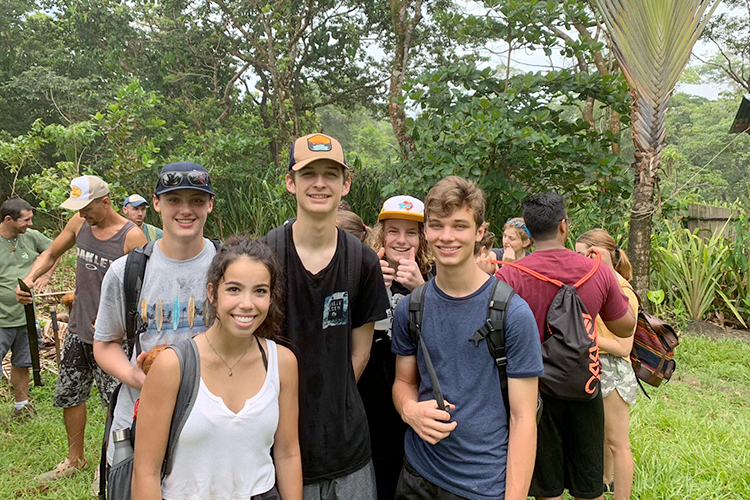
GRANT RECIPIENT
Association for the Protection of the Nandamojo River Watershed
ABOUT THIS PARTNER
This organization was founded nearly 30 years ago by several international folks who, upon arriving in Costa Rica, were inspired to do permaculture, nature conservation, research on systems to clean water, water resource protection, and more.
The challenge that motivated the creation of the organization was “to make the river flow again all year long,” and thus began the ecological history of the Nandamojo River basin with the union of both international and local people.
The main projects have been erosion control, the use of vetiver grass, ecological restoration, environmental education, generation of green jobs and fire management.
Nandamojo Association currently has environmental education programs for all ages. They also have a native tree and plant nursery, take part in reforestation projects, and make compost and many organic fertilizers (especially with the use of microorganisms such as fungi and beneficial bacteria).
Nandamojo also has an organic garden project at a local school. Additionally, they work with beekeepers and create sources of employment that help people’s economies while protecting natural resources.
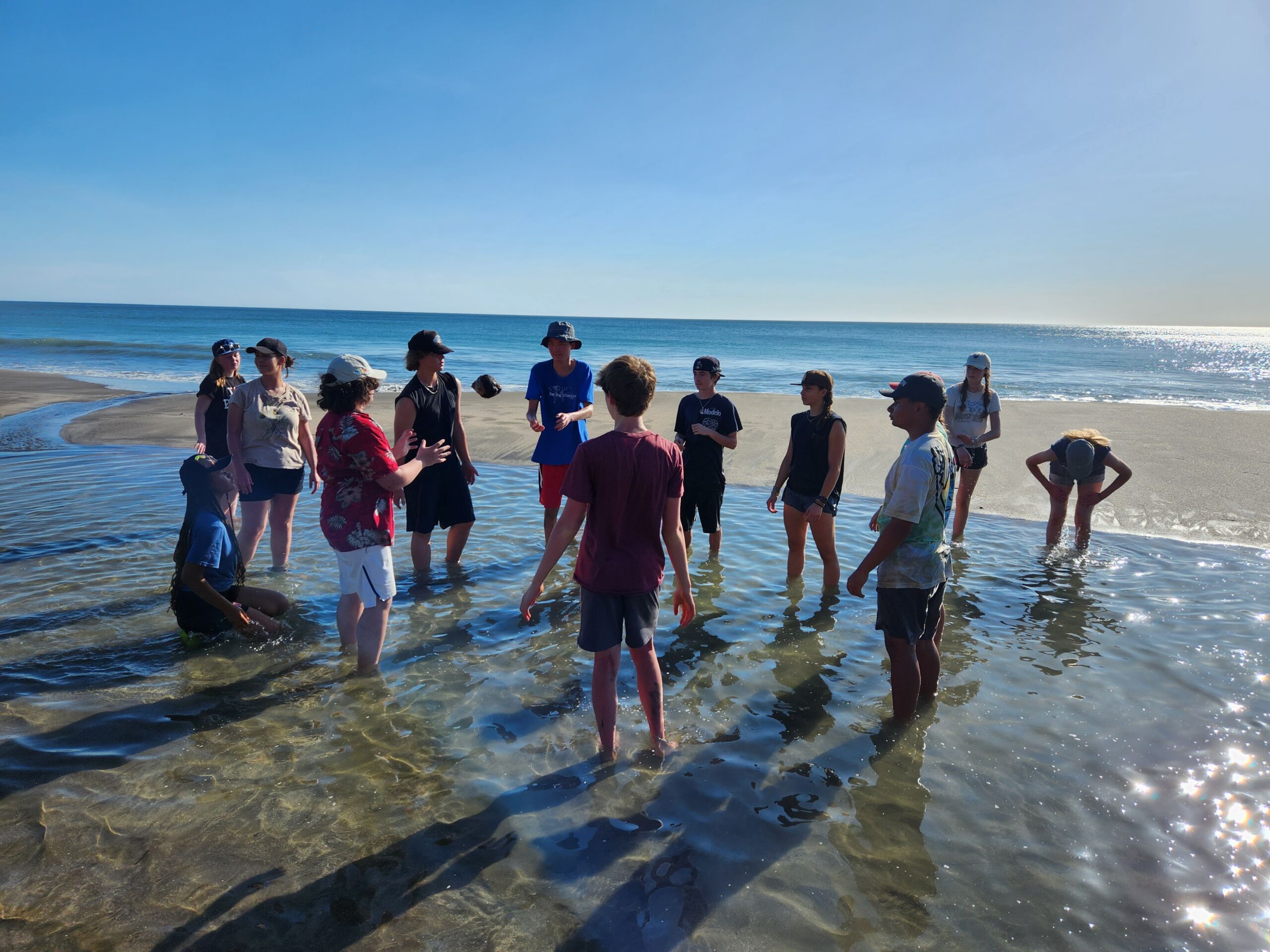
PROJECT
Supporting community development and environmental conservation projects in rural beach communities of Guanacaste, specifically Los Pargos, Las Delicias, Rio Seco, Guapote and Junquillal.
DETAILS
We do community and beach clean ups and help the communities make their schools, parks, and plazas more beautiful. We create signs with conscious messages to bring awareness about how important it is to protect our flora and fauna, plus create a cleaner and safer environment.
RELATED GLA PROGRAM(S) & PROJECTS
Costa Rica: Spring Break Service Adventure
Costa Rica: Beachside Service Adventure

GRANT RECIPIENT
Uniendo Comunidades Community Fund
ABOUT THIS PARTNER
This organization has been with GLA since 2019. The impact that that this group has on the community is through environmental education. Volunteers assist with teaching the community about the importance of recycling, designing creative signs and murals, and organizing the surrounding towns to assist with campaigns such as school beauitification projects. Using art to inspire the community and bring environmental awareness is what excites Uniendo Comunidades!
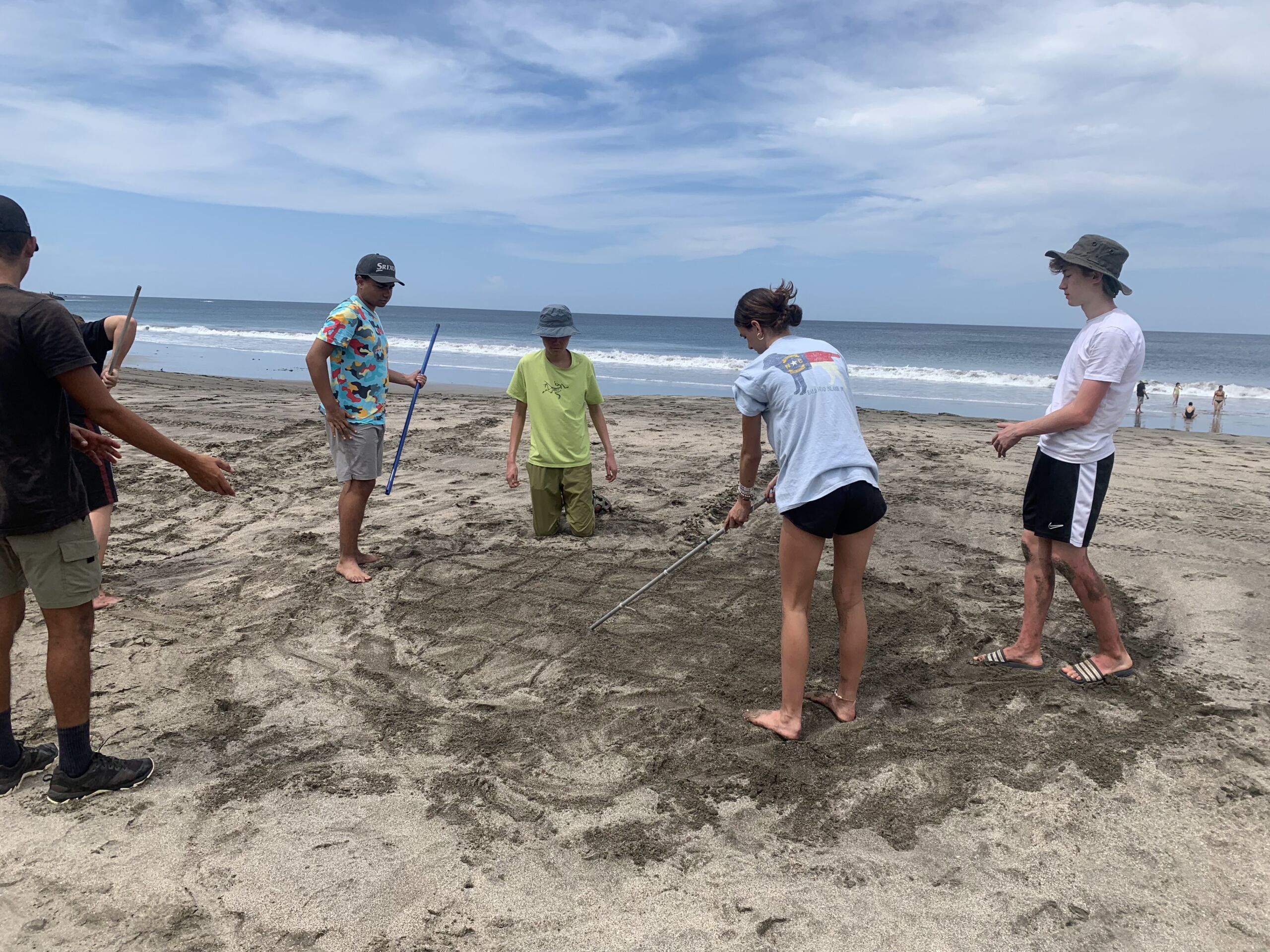
PROJECT
In 2016, the Avellanas GEA Environmental Group was created, thanks to the community work of 8 members and different collaborators, neighbors of the Avellanas area who share the conservationist sentiment of our ecology.
During the last 7 years, the group has carried out beach cleaning and mangrove restoration activities together with national and international volunteers. Each year, they cover 8 kilometers of beaches such as Avellanas, Playa Callejones, Playa Negra, Punta Pargos, among others located in the region of Santa Cruz, Guanacaste, districts of April 27 and Tamarindo. Global Leadership Adventures students began volunteering with GEA in 2018 and have contributed to numerous projects over the years.
DETAILS
GEA’s primary objective is to promote knowledge of nature-based methods through people from all over the world who want to learn and apply their knowledge by participating in experiential workshops on coastal ecosystems such as mangroves that store approximately 50% of the carbon dioxide emitted by human activity. Likewise, participants have the opportunity to exchange with local students to share their life stories and learn about the culture of Costa Rica.
GEA offers a complete cultural and scientific immersion in which participants obtain tools to protect coastal ecosystems and valuable data for scientific studies of great importance that contribute to humanity’s search for solutions to stop the climate emergency that affects all people on the planet.
By participating in the protection and restoration of these areas, people contribute to preventing extreme weather events and applying ecological solutions in their environments, becoming global leaders.
RELATED GLA PROGRAM(S) & PROJECTS
Costa Rica: Beachside Service Adventure
Costa Rica: Surf, Sports & Sustainability
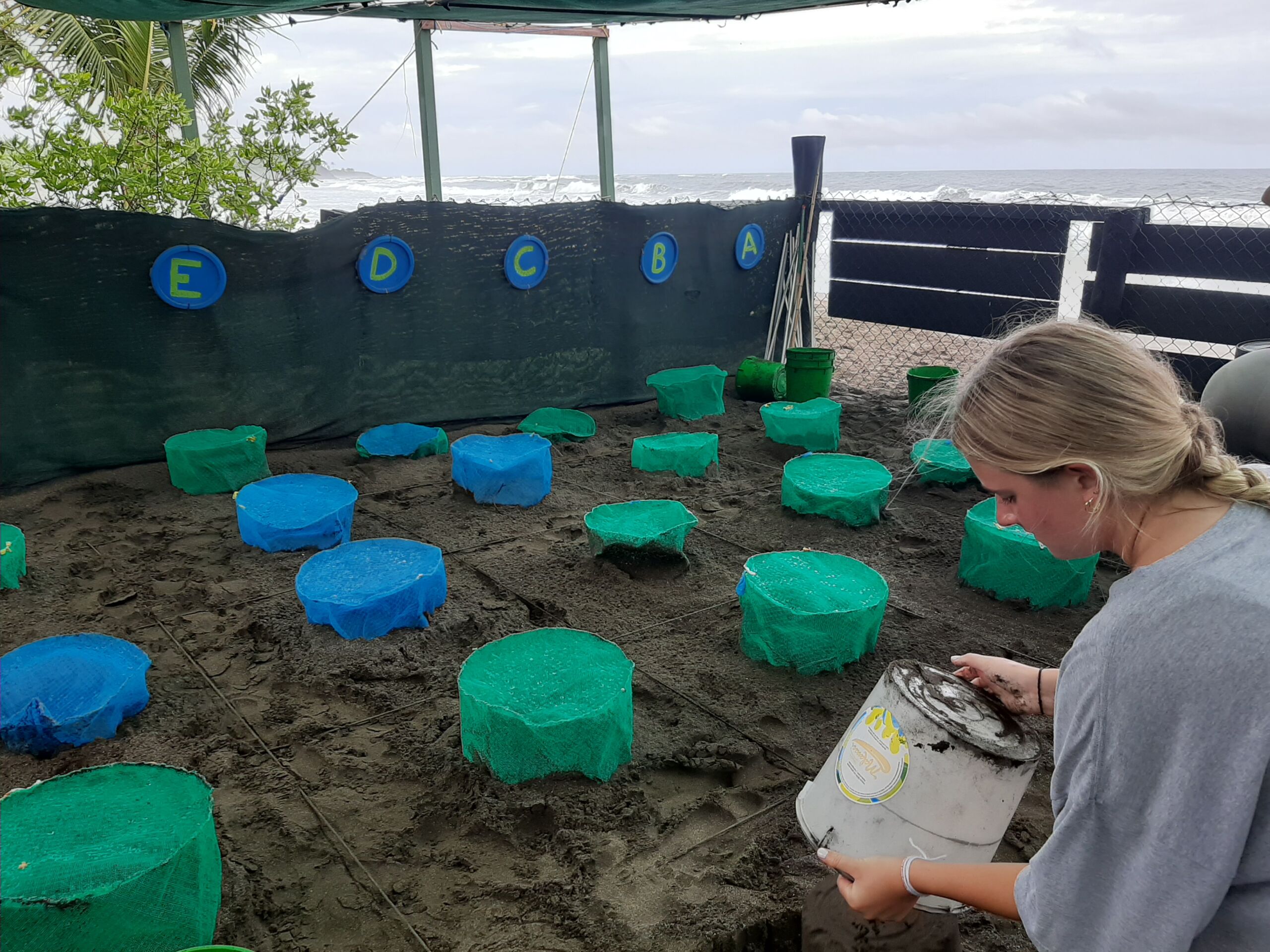
GRANT RECIPIENT
Grupo Ecologico de Avellanas
ABOUT THIS PARTNER
Mission: Integrate the local and international population in an educational and participatory way in order to rescue the biodiversity of the areas served, preserve endemic species and protect coastal marine reserves.
Vision: To equip present generations with ecological methods for the restoration and protection of coastal ecosystems and species, as well as to promote the collection of scientific data for academic studies that involve the integration of indigenous knowledge and science as a fundamental element for the development of nature-based solutions.
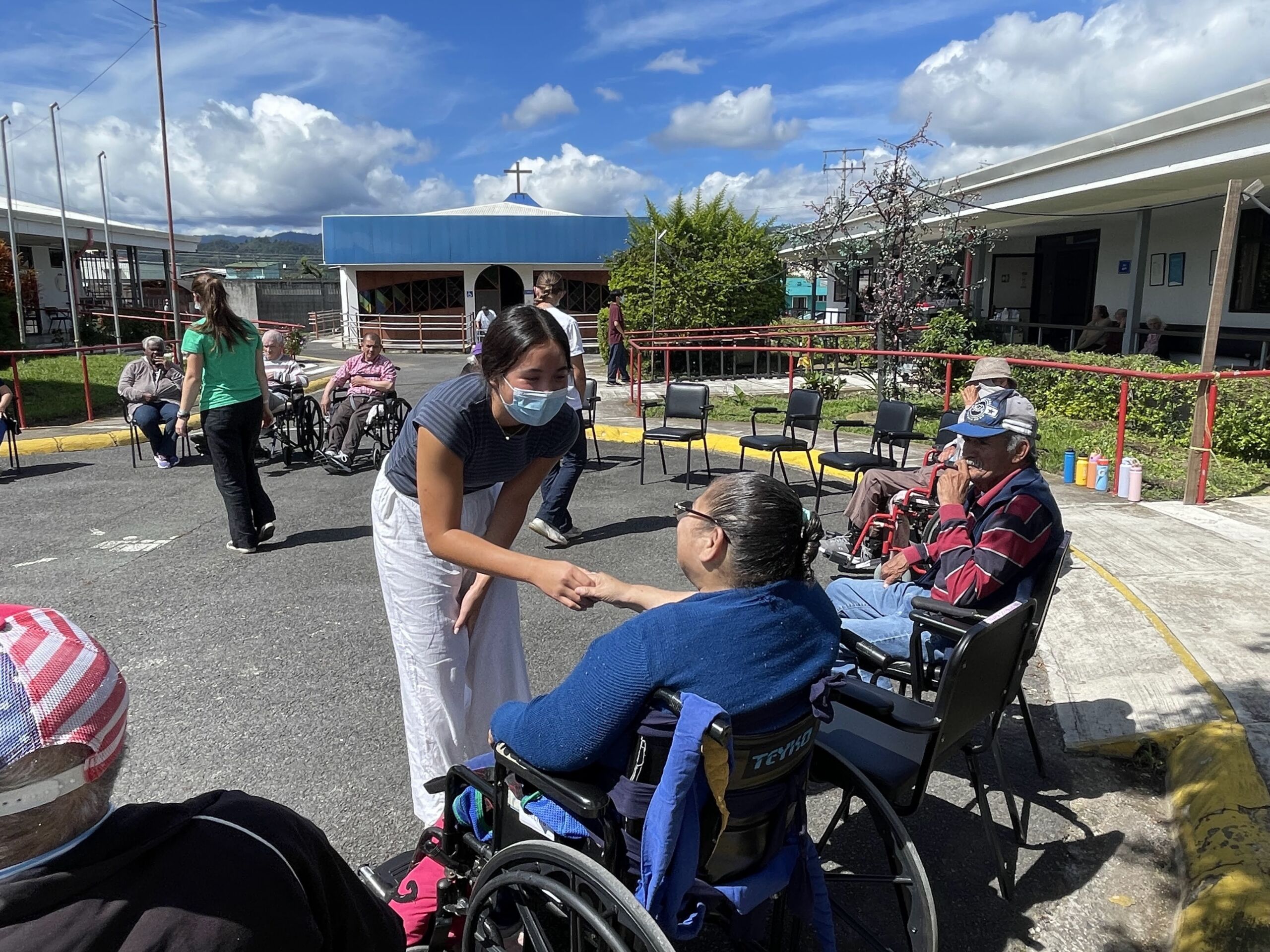
PROJECT
Supporting & engaging with elderly residents at an elderly care center.
DETAILS
At the Manos de Jesús Home we try to ensure that the elderly live in their family nucleus, however, when situations of abandonment, mistreatment, aggression or any other aspect that threatens these people occur, we transfer them to our institution to protect them and provide them with positive quality of life. Students support various projects in the home during their time in-country: they help with mobility exercises, using techniques of physical & occupational therapy. They also engage in various mental stimulation exercises, like playing games with the residents. They also support the caretakers in whatever daily tasks are asked of them: taking vital signs, serving food, cleaning the kitchen, etc.
MORE INFORMATION
The Manos de Jesús Home is a trustworthy and credible institution endorsed by social welfare organizations such as: the Social Protection Board, the National Council for Older Adults (CONAPAM), the Social Protection Board of Cartago, the Mixed Institute of Social Assistance (IMAS), the National Crusade Federation for the Protection of the Elderly (La CRUZADA), the Ministry of Health, the Comptroller General of the Republic and the Costa Rican Social Security Fund (CCSS).
RELATED GLA PROGRAM(S) & PROJECTS

GRANT RECIPIENT
Hogar Manos de Jesús
ABOUT THIS PARTNER
The Manos de Jesús Home is a non-governmental organization (NGO) of social good declared of Public Interest, non-profit, apolitical, without distinctions of race, creed or social position. It was founded in 1992 and is a work of love for the elderly who suffer loneliness and abandonment. It is located in Guadalupe de Cartago, Costa Rica. From the Francisca Carrasco School, 50 meters southwest, on the road to the Industrial Park.

PROJECT
Supporting Anti-Rhino Poaching & Conservation projects in Kwa-Zulu Natal
DETAILS
What motivates us daily is the dream of both White and Black rhino species thriving in KwaZulu-Natal and far beyond – forever free, forever secure from poaching, well managed and protected. Today we strive to protect the world’s last remaining African rhino species, so that tomorrow they will still continue to play their vital role in our continent’s irreplaceable and beautiful ecosystems, contributing to an ever-growing realization of our fundamental reliance on the natural environment (and ALL its elements) for our very basic needs. We honour their uniqueness as one of the primary icons of Africa’s great wilderness areas.
MORE INFORMATION
Now in its tenth year of operations, Project Rhino brings together organisations with a common vision and goal, identifies synergies through an integrated, common approach and collectively is a representative body which carries powerful leverage ability.
RELATED GLA PROGRAM(S) & PROJECTS
South Africa: Safari & Conservation Expedition™
South Africa Internship: Career Exploration in STEM With a Focus on Wildlife Veterinary
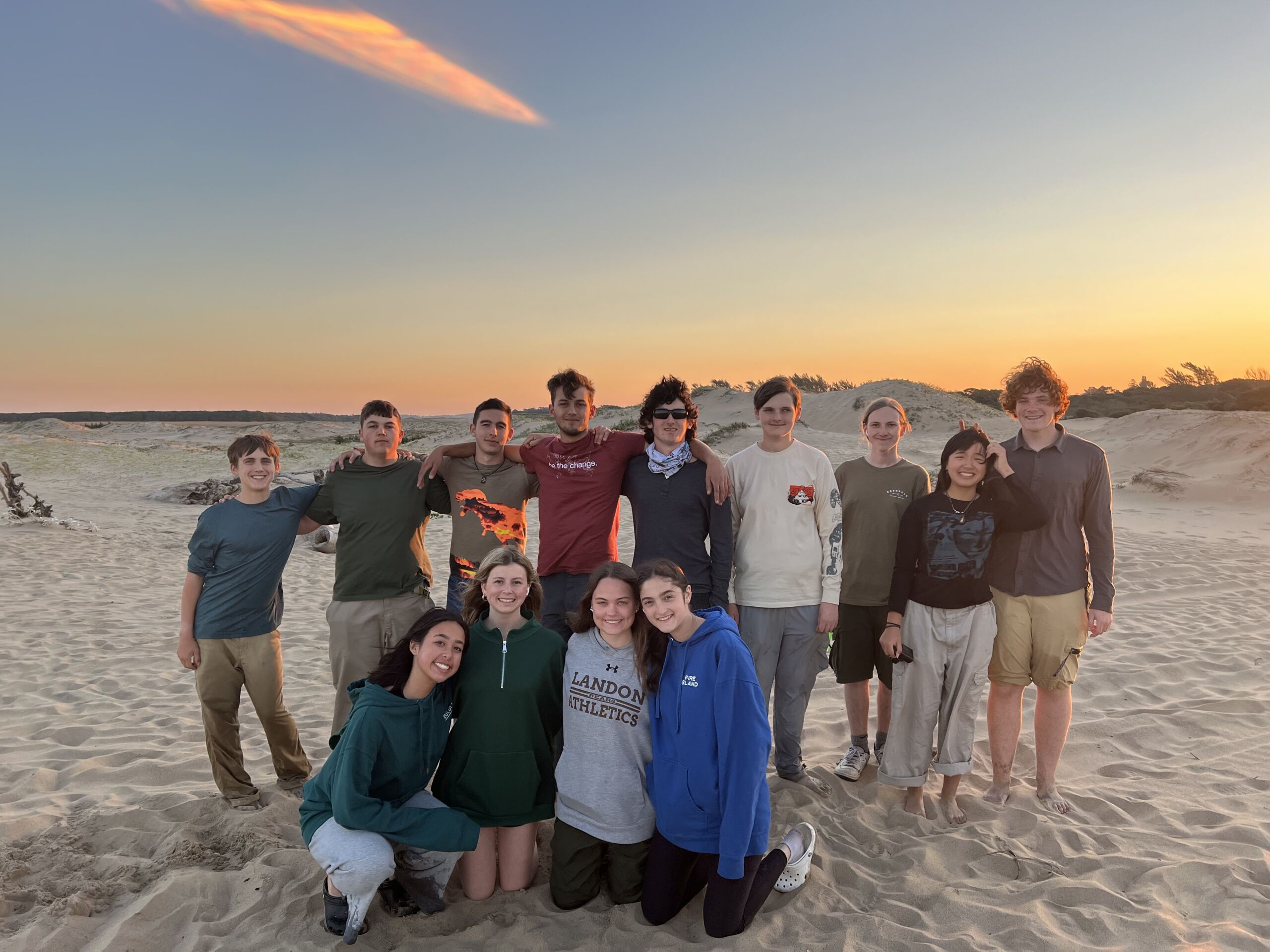
GRANT RECIPIENT
Project Rhino
ABOUT THIS PARTNER
Project Rhino is an association of like-minded organisations, facilitating rhino conservation interventions aimed at eliminating rhino poaching and securing the white and black rhino populations of KwaZulu-Natal. The members of Project Rhino recognise that the work in conserving and protecting rhinos from the threat of poaching is symbolic of the broader threat faced by all wildlife and that all wildlife will benefit from actions taken by Project Rhino. The association is also aware that the poaching of rhino is symptomatic of the overall, bigger environmental crises facing South Africa and its neighbors.
HIGHLIGHTS
GLA Students in South Africa work with the Ranger & Reserve Support Units (K9 Anti-Poaching Dog unit) and Wildlife youth and leadership development (WYLD – Rhino Art Project).
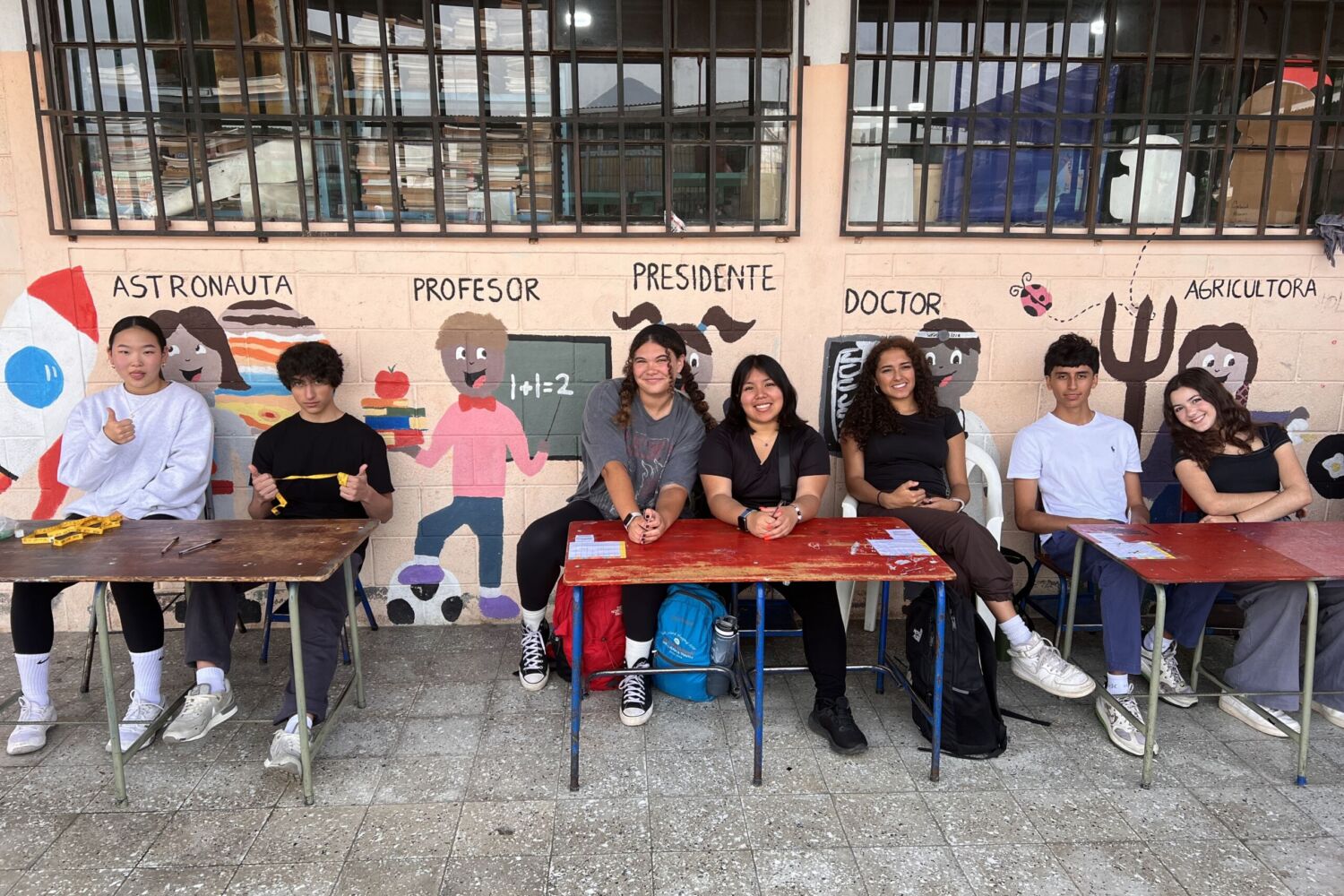
PROJECT
Voluntarios Afines goal is to improve the living conditions of Guatemalan children
DETAILS
Voluntarios Afines has more than 15 years of experience in the country’s Mayan Highlands. They focus on children, healthcare, education, and child migration issues.
Voluntarios Afines is dedicated to providing quality services to community members in the Quetzaltenango area.
RELATED GLA PROGRAM(S) & PROJECTS
Guatemala: Children of the Maya
Guatemala: Global Health in the Land of the Maya

GRANT RECIPIENT
Voluntarios Afines
ABOUT THIS PARTNER
We have been working with Orlando since GLA established its presence in Guatemala in 2009 and with his organization, Voluntarios Afines in Quetzaltenango since 2011.
Voluntarios Afines has relationships with medical professionals and clinics, as well as with public schools and daycare centers in Quetzaltenango (Xela)
HIGHLIGHTS
GLA students in the Children of the Maya program develop and deliver their own lesson plans to local students. Many local students face challenges in affording school and in passing exams to proceed to the next grade level. GLA students help the students in the classroom, which generates excitement in the local community when attending school. GLA students also help improve their English skills and help tutor students who might be falling behind for final exams. Success in school and English proficiency opens doors for local students, and GLA students are supporting this growth. Students will also have the option to participate in a construction project at the school. Schools in Guatemala are also often at or exceeding capacity and GLA students have assisted in construction projects to build new classrooms or provide more bathrooms for students.
GLA students in the Global Health in the Land of the Maya program take part in medical campaigns in rural Guatemalan clinics. They are accompanied by medical professionals and rotate through stations to include: general medicine, triage, pharmacy, education, and hygiene. Students take part in many activities from registering patients, taking vital signs and height/weight measurements, shadowing doctor consults, and dispensing medication. Rural clinics often lack the same resources (personnel, supplies, and specializations) that urban medical facilities possess. Students will learn about the discrepancies in the medical system between urban and rural and how certain populations (predominantly indigenous Maya) experience more severe public health issues due to the lack of equal access to quality care.

